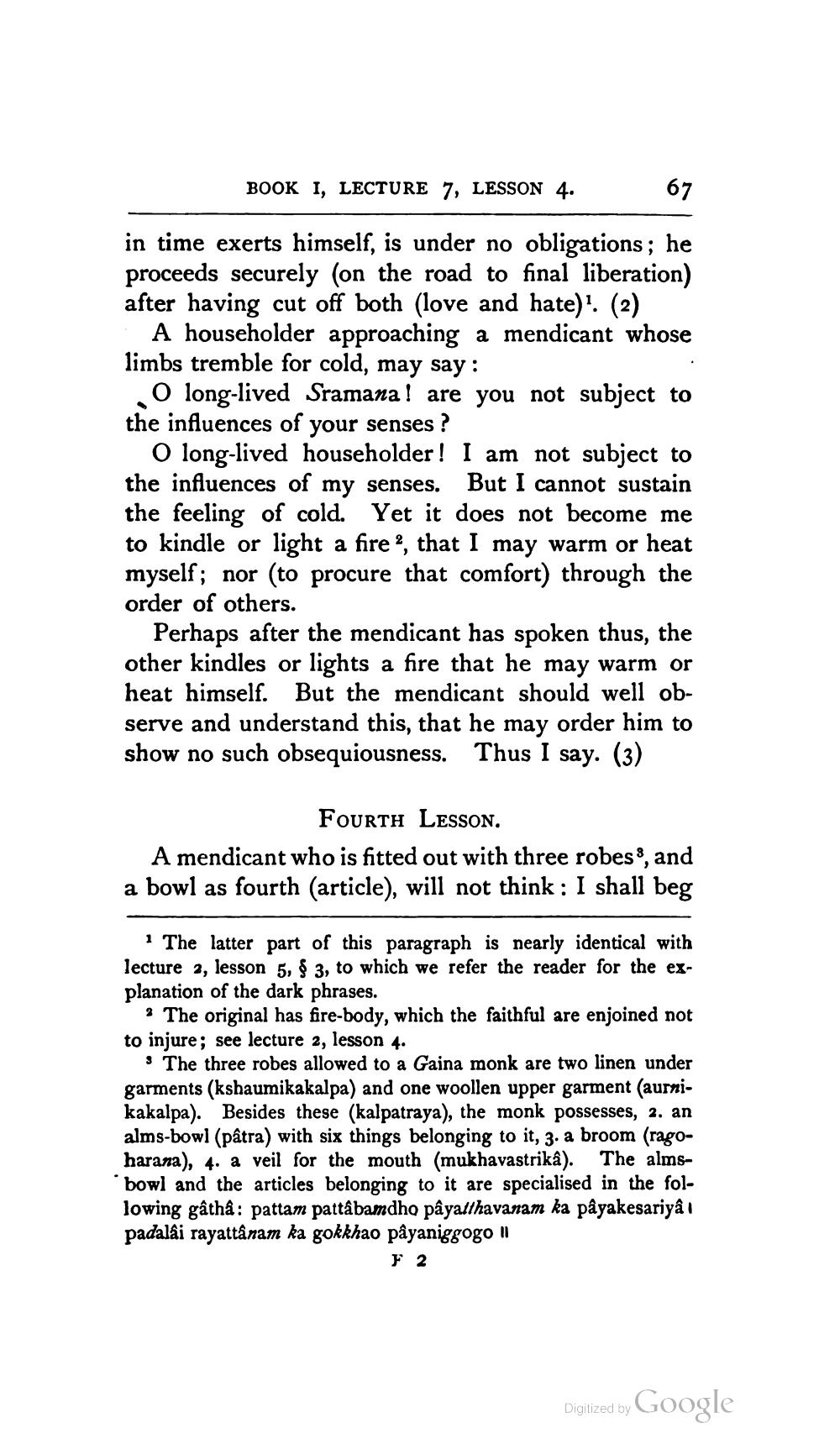________________
BOOK I, LECTURE 7, LESSON 4.
67
in time exerts himself, is under no obligations; he proceeds securely (on the road to final liberation) after having cut off both (love and hate)". (2)
A householder approaching a mendicant whose limbs tremble for cold, may say:
O long-lived Sramana! are you not subject to the influences of your senses ?
O long-lived householder ! I am not subject to the influences of my senses. But I cannot sustain the feeling of cold. Yet it does not become me to kindle or light a fire 2, that I may warm or heat myself; nor (to procure that comfort) through the order of others.
Perhaps after the mendicant has spoken thus, the other kindles or lights a fire that he may warm or heat himself. But the mendicant should well observe and understand this, that he may order him to show no such obsequiousness. Thus I say. (3)
Fourth LESSON. A mendicant who is fitted out with three robes, and a bowl as fourth (article), will not think : I shall beg
1 The latter part of this paragraph is nearly identical with lecture 2, lesson 5, $ 3, to which we refer the reader for the explanation of the dark phrases.
? The original has fire-body, which the faithful are enjoined not to injure; see lecture 2, lesson 4.
The three robes allowed to a Gaina monk are two linen under garments (kshaumikakalpa) and one woollen upper garment (aurnikakalpa). Besides these (kalpatraya), the monk possesses, 2. an alms-bowl (pâtra) with six things belonging to it, 3. a broom (ragoharana), 4. a veil for the mouth (mukhavastrikâ). The almsbowl and the articles belonging to it are specialised in the following gâthâ: pattam pattábamdho pâyalthavanam ka påyakesariyat padalai rayattanam ka gokkhao payaniggogo II
F2
Digitized by Google




